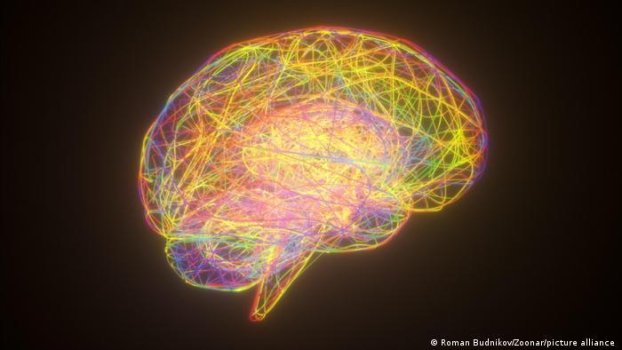Computers are solving problems no human could ever decode — and in ways that feel distinctly nonhuman to us. Should we embrace or rethink the strange intelligence of machines?
In 2019, five of the top poker players in the world sat down in a casino to play poker against a computer. Over the course of the game they lost big — some $1.7 million (€1.77 million) — to a poker bot called Pluribus.
It was the first time an artificial-intelligence (AI) program beat elite human players at a game of more than two players.
In a post-game interview, the players were asked how they felt about losing to a computer. Pluribus, they said, ʺbluffed really well. No human would ever bet like that.ʺ
One player said the bot played like 'an alien', betting hundreds of times more than human players did, even when it was bluffing.
How a bot learned to play poker
ʺWhy was it so alien? It's because Pluribus learned how to play poker completely differently to how humans do," Eng Lim Goh, Chief Technology Officer at Hewlett Packard Enterprise, told DW.
When a human learns to play poker, Goh explained, they learn two main skills: How to make superior mathematical decisions, and how to read their opponents.
But Pluribus didn't learn this way. Instead, it got incredibly good at one aspect of poker — bluffing — through trillions of games of trial and error.
ʺThey trained the machines how to bluff by pitching two machines against each other over trillions of games,ʺ said Goh. ʺAt the end of the training, a bot emerged that was an expert at bluffing.ʺ
This method of learning is called reinforcement learning. It's a unique way to learn one task by repeating the task over and over again until it finds the best methods.
ʺIt explored more spaces of probability than humans ever have since the game was invented. It found different ways of playing,ʺ said Goh.
Continue reading: https://www.dw.com/en/no-human-could-do-that-is-ai-becoming-too-alien/a-63253727
In 2019, five of the top poker players in the world sat down in a casino to play poker against a computer. Over the course of the game they lost big — some $1.7 million (€1.77 million) — to a poker bot called Pluribus.
It was the first time an artificial-intelligence (AI) program beat elite human players at a game of more than two players.
In a post-game interview, the players were asked how they felt about losing to a computer. Pluribus, they said, ʺbluffed really well. No human would ever bet like that.ʺ
One player said the bot played like 'an alien', betting hundreds of times more than human players did, even when it was bluffing.
How a bot learned to play poker
ʺWhy was it so alien? It's because Pluribus learned how to play poker completely differently to how humans do," Eng Lim Goh, Chief Technology Officer at Hewlett Packard Enterprise, told DW.
When a human learns to play poker, Goh explained, they learn two main skills: How to make superior mathematical decisions, and how to read their opponents.
But Pluribus didn't learn this way. Instead, it got incredibly good at one aspect of poker — bluffing — through trillions of games of trial and error.
ʺThey trained the machines how to bluff by pitching two machines against each other over trillions of games,ʺ said Goh. ʺAt the end of the training, a bot emerged that was an expert at bluffing.ʺ
This method of learning is called reinforcement learning. It's a unique way to learn one task by repeating the task over and over again until it finds the best methods.
ʺIt explored more spaces of probability than humans ever have since the game was invented. It found different ways of playing,ʺ said Goh.
Continue reading: https://www.dw.com/en/no-human-could-do-that-is-ai-becoming-too-alien/a-63253727

